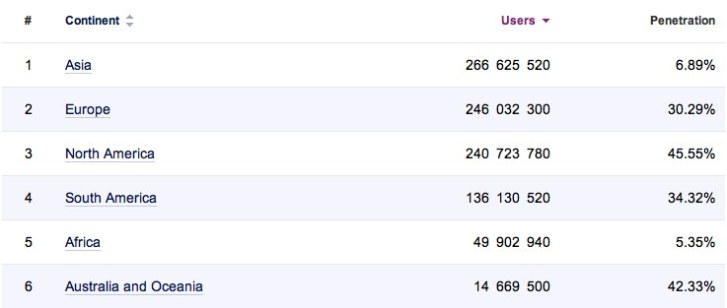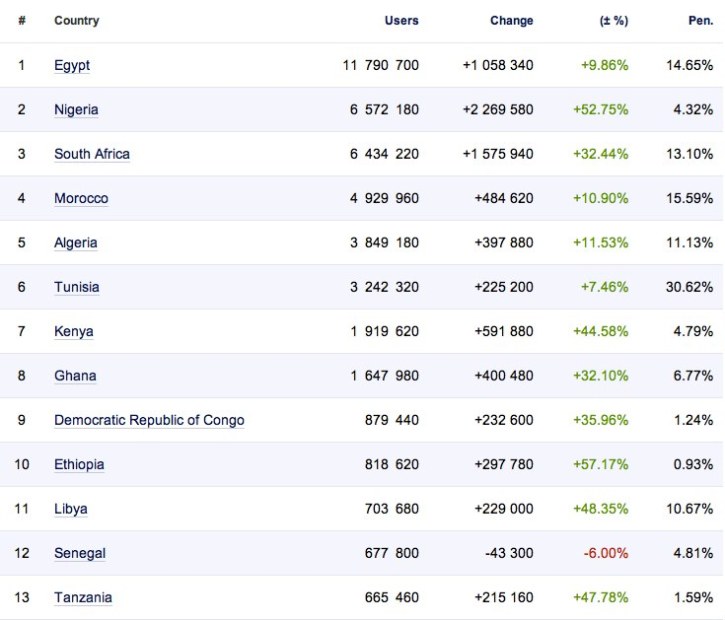 Graphic from the BBC and data from SocialBakers
Graphic from the BBC and data from SocialBakers
On October 4th, 2012, Facebook passed the billion user mark. These users generated some 1.13 trillion ‘likes,’ 219 billion photos and 17 billion location check-ins. Launched in 2004, and well established in markets like North America and Europe, Facebook increasingly looks to places like Africa for the next billion users.
 It is no surprise there will be more mobile phones on the planet than people before the end of this year. Statistics released to coincide with the Facebook announcement revealed there were now 600 million users accessing the site via a mobile device – up 48 million from 552 million in June this year. That said, penetration is still relatively low in places like Asia and Africa – below 7 per cent in Asia and just over 5 per cent in Africa. This leaves plenty of potential users in these markets and clearly a mobile strategy is the future for the company.
It is no surprise there will be more mobile phones on the planet than people before the end of this year. Statistics released to coincide with the Facebook announcement revealed there were now 600 million users accessing the site via a mobile device – up 48 million from 552 million in June this year. That said, penetration is still relatively low in places like Asia and Africa – below 7 per cent in Asia and just over 5 per cent in Africa. This leaves plenty of potential users in these markets and clearly a mobile strategy is the future for the company.
In Africa, Facebook has targeted the use of basic phones known widely as ‘feature phones.’ They are unable to display the full-featured site, but instead can use specially created variations of the network. In May 2010, Facebook announced the launch of Facebook Zero, a text-only version of Facebook that can be accessed at 0.facebook.com. In the 18 months after Facebook Zero launched in Africa, the number of Africans on Facebook grew by 165%. Certainly working directly with the telecom providers, and offering the service for free to users, has done a lot to help spread the network.
 Looking to further expand its reach, Facebook took the next step when it acquired Snaptu last year for a reported 60-70 million USD. This strategic investment underpins the project called ‘Facebook for Every Phone.’ Snaptu specializes in enabling the development of apps for low-cost feature phones. Their cloud based application approach means their apps work on more than 2,500 devices, indeed many of the feature phones that can be found across the continent.
Looking to further expand its reach, Facebook took the next step when it acquired Snaptu last year for a reported 60-70 million USD. This strategic investment underpins the project called ‘Facebook for Every Phone.’ Snaptu specializes in enabling the development of apps for low-cost feature phones. Their cloud based application approach means their apps work on more than 2,500 devices, indeed many of the feature phones that can be found across the continent.
As the company looks to reach the next billion users we can assume there will be a continued focus on Africa.